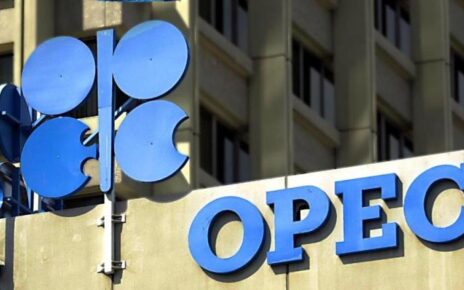The Debt Management Office (DMO) has reported that Nigeria’s public debt stock rose to N49.8 trillion (about $108.3 billion) at the end of the first quarter this year.
The Office gave these figures in a statement issued late Friday night and pointed out, however, that the debt stock excluded the Federal Government’s N22.7 trillion Ways and Means Advances of the Central Bank of Nigeria (CBN).
The DMO reported: “As at March 31, 2023, the Total Public Debt Stock comprising the external and domestic debts of the Federal Government of Nigeria (FGN), the thirty-six (36) States, and the Federal Capital Territory (FCT) was N49.85tr ($108.30bn).
“Comparatively, the Total Public Debt Stock for the preceding period, December 31, 2022, stood at N46.2tr ($103.3bn). During the period, there were increases in the debt stock of the FGN, States, and the FCT.”
“The Public Debt Stock for March 2023 does not include the FGN’s N22.719 Trillion Ways and Means Advances of the Central Bank of Nigeria whose securitization was approved by the National Assembly in May 2023. The amount will be included in the FGN’s Domestic Debt Stock from June 2023”, the DMO added.
It would be recalled that last Thursday the DMO cautioned the Federal Government against additional borrowing as 73.5% of revenue generated this year will be used to service debt and cannot support additional borrowing.
It, therefore, advised the government to focus on increasing revenue generation, noting that attaining a sustainable Debt Service-to-Revenue ratio will require increasing FGN revenue from N10.49 trillion projected in 2023 budget to about N15.5 trillion.
The DMO, in the report of the Annual National Market Access Country (MAC) Debt Sustainability Analysis, stated: “The analysis of the results of 2022 MAC-DSA shows that the Total Public Debt-to GDP ratio is projected to increase to 37.1 per cent in 2023, relative to 23.4 per cent as at September 2022, due to the inclusion of the N8.80 trillion (new borrowings) for the year 2023, the FGN Ways and Means at the CBN of over N23 trillion and estimated Promissory Notes issuance of N2.87 trillion in the debt stock.
“Baseline Scenario: The Country’s Debt stock remains sustainable under these criteria, but the borrowing space has been reduced when compared to Nigeria’s self-imposed debt limit of 40 per cent set in the MTDS, 2020-2023.
“On the other hand, FGN Debt Service-to-Revenue ratio at 73.5 per cent in 2023 exceeds the recommended threshold of 50 per cent due to low revenue, which means that there is need to significantly increase government revenue.
“Under the alternative scenario, the total public debt-to-GDP ratio at 45.4 per cent in 2023 exceeds Nigeria’s self-imposed debt limit of 40 per cent, while the FGN Debt Service-to-Revenue also exceeds the recommended threshold of 50 per cent”, it warned.
Experts have advised the new administration against incurring debts in view of the negative implications for the nation’s fiscal efficiency and sustainable growth of the economy.




